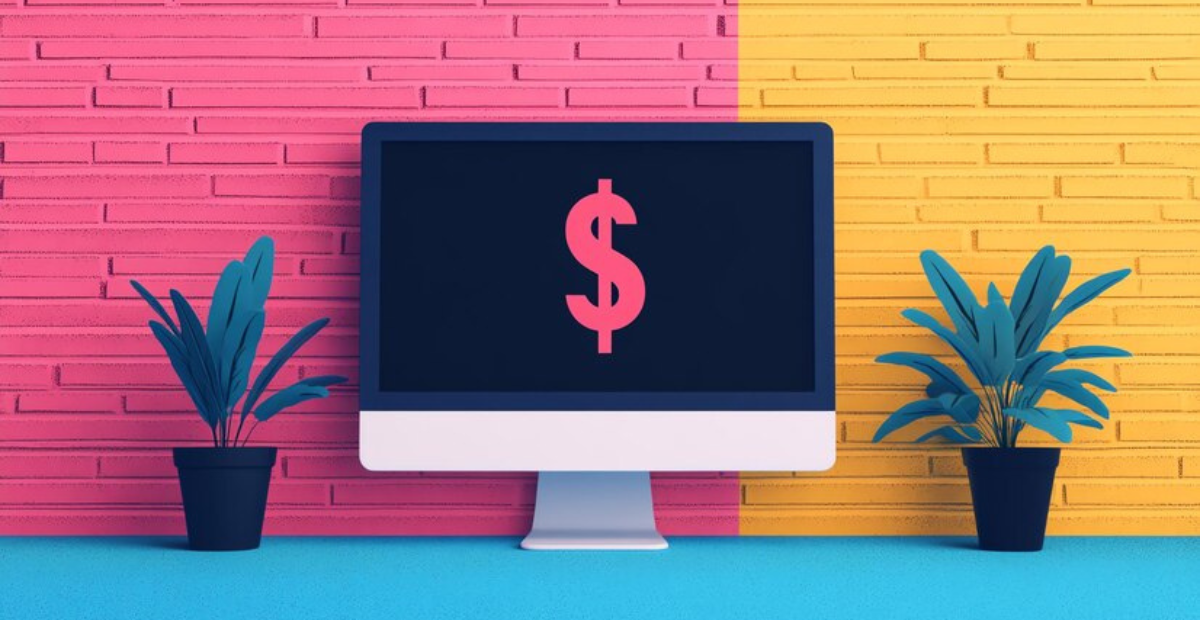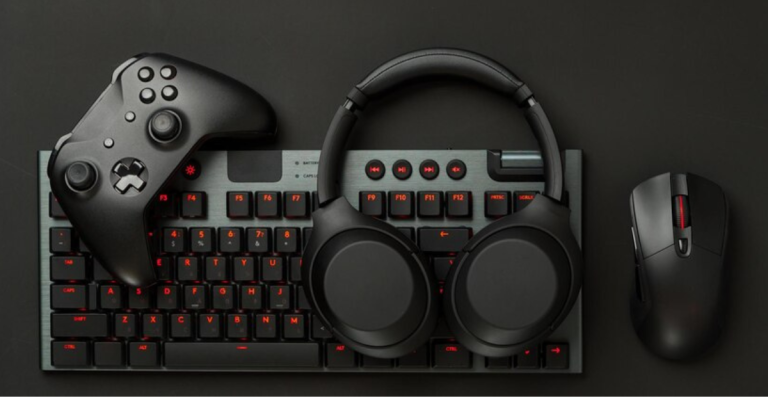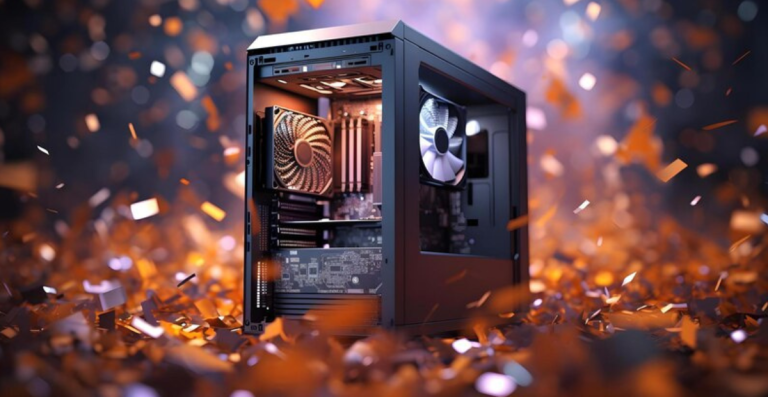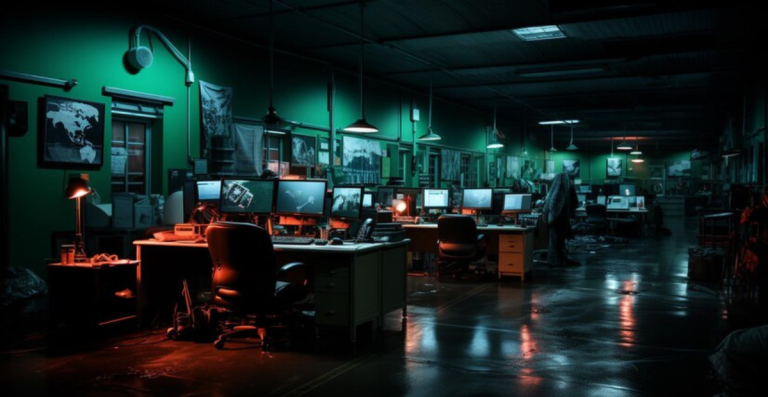When Upgrading Your PC Cost Makes Sense: Cost Benefit Analysis

Technology advances swiftly, and with each new improvement in both software and hardware, many users begin to worry if their present PC is still equal to the task. As new programs and games demand more power, the question arises: is it time to replace your PC?
To make the appropriate decision, it’s vital to examine your PC’s current performance and consider whether the benefits of replacing individual components exceed the price. Sometimes, upgrading might considerably boost your PC’s performance, while other times, a complete system replacement can be the superior option.
The key is to examine your system’s performance, understand your needs, and calculate the prices of replacing various elements, such as RAM, graphics cards, or CPUs. By doing so, you can make a better educated choice regarding whether an update is the most cost-effective answer for your needs.
Analyzing Your PC’s Current Performance
It’s important to assess the performance of your PC before making any changes. Is it having trouble with easy tasks? Are demanding apps or games giving you difficulties to run? You can determine whether an upgrade is actually required by asking yourself these questions.
Identifying Performance Problems
The first step when thinking about upgrading is to discover performance issues. Is your computer getting unresponsive or sluggish? Do apps crash frequently? These signs can suggest that the hardware can no longer meet the needs of the current world.
Simple Tasks Growing Unstable or Slow
It may be an indication that the hardware on your computer is old if it has trouble with simple tasks like web browsing or word processing software. Frequent crashes, lagging, and slow boot times are signs that your existing computer may not be up to par for even the most basic operations.
Problems with Gaming: Stuttering, Glitches, and Low FPS
Gamers are aware of how crucial fluid performance is. The CPU or GPU may not be meeting the demands of contemporary games if you experience stuttering, low frame rates, or graphical flaws when playing. Upgrading could be required for a better gaming experience because games, particularly more recent ones, demand more potent processors and graphics cards.
Having Trouble Multitasking
You may need a better CPU or more RAM if your computer has trouble managing several tasks at once. Running many programs at once is known as multitasking. If your computer has trouble switching between apps or loading programs, an upgrade might be the answer.
Old Hardware Doesn’t Run Well with New Software
Software frequently gets more complex as it develops. Your hardware may no longer be compatible with the most recent software updates if you see that new updates or apps cause your system to lag or function poorly. This is an obvious indication that an upgrade may be warranted.
Analyzing Your User’s Needs
The next stage in assessing whether you need an upgrade is learning how you use your PC. Different tasks require different hardware specifications, so knowing what you need from your computer will assist guide your upgrading options.
- Identify Your Usage Type (Browsing, Gaming, Editing): Your hardware demands rely primarily on what you do with your PC. If you mostly use your computer for browsing the internet, viewing movies, or reading emails, you may not need a high-end system.
On the other hand, whether you’re like gaming, video editing, or 3D modeling, these resource-heavy jobs demand more from your CPU, GPU, and RAM. Knowing your principal usage can help you identify what sections of your system deserve the most attention.
- Match Hardware with Usage Level: Once you’ve defined your usage type, you can match the necessary hardware to your demands. For example, if you are a gamer, investing in a strong GPU and high-performance CPU will increase your gaming experience.
For casual users, boosting your RAM and storage might be enough to enhance speed without needing to spend in top-of-the-line components.
- Planning for Long-Term Use: When opting to upgrade, it’s crucial to examine not only your current needs but also how your usage may alter in the future.
Will you start editing videos or play more demanding games in a few years? Planning ahead can assist ensure that your PC will remain efficient for years to come, saving you from having to replace too soon again.
Analyzing The Cost-benefit of Upgrading Your PC
When updating your PC, it’s vital to consider the costs versus the benefits. Different components of your PC come at varying price ranges, and the performance gain you get from upgrading them can fluctuate. Understanding the cost-benefit of upgrading specific components will help you determine where to put your money for the best benefits.
Evaluating Component Upgrades
- RAM
- Cost: Upgrading RAM is often one of the most affordable improvements you can make. Prices typically range from $30 for basic models to $150 for higher-end, larger capacity options.
- Benefit: Increasing your RAM can greatly improve your system’s ability to handle multiple programs at once. If your PC is struggling with multitasking or running large files, adding more RAM can boost responsiveness and speed. For tasks like video editing or working with large spreadsheets, more RAM can make your system much more efficient.
- Graphics Card
- Cost: Graphics cards vary widely in price, starting from around $200 for mid-range models, with high-end models reaching up to $1,500 or more.
- Benefit: Upgrading your GPU is essential for improving gaming performance and graphics rendering. If you play graphically demanding games or work with video editing and 3D design, a new GPU can significantly improve visual quality and performance. For gamers, this is one of the most impactful upgrades to boost frame rates and eliminate graphical glitches.
- Storage Unit
- Cost: Solid-state drives (SSD) are more expensive than traditional hard drives, with prices ranging from $50 for small capacity models to $300 for larger units (1TB or more).
- Benefit: Replacing a hard disk drive (HDD) with an SSD can drastically speed up your PC. Boot times will be quicker, applications will open faster, and overall responsiveness will improve. If you have a lot of large files or programs that you need to access frequently, an SSD will enhance your productivity by reducing wait times.
- CPU
- Cost: CPU upgrades can be expensive, ranging from $150 for mid-range models to $600 for high-end processors.
- Benefit: The CPU is the brain of your PC, and upgrading it can improve overall processing power. For applications that require a lot of processing, such as gaming or video editing, a faster CPU will speed things up and reduce lag. However, upgrading the CPU may require a new motherboard and possibly more RAM, which can increase the cost.
- Cooling Solutions
- Cost: Basic air coolers start at $30, but high-performance liquid cooling systems can cost over $200.
- Benefit: Proper cooling helps prevent overheating, which can lead to system instability or hardware damage. If you’re using your PC for gaming or resource-heavy tasks, investing in a good cooling system can improve performance and extend the lifespan of your components by maintaining optimal temperatures.
So, When Does Upgrading Your PC Make Sense?
Deciding whether to upgrade your PC depends on numerous aspects, including the performance of your present system, your unique needs, and the overall cost-effectiveness of the upgrade.
Performance Bottlenecks
A performance bottleneck arises when one component of your system, such as the CPU or GPU, limits the entire performance. For example, if you notice that your PC struggles to run programs or games smoothly, and the issue seems to arise from a single component, it may be time to upgrade that specific element.
If, for instance, your processor cannot keep up with modern programs, upgrading to a faster CPU will alleviate many performance concerns, delivering an overall smoother experience.
Obsolete Hardware
As technology progresses, older hardware components may not be able to handle the current software needs. If your computer is employing obsolete components, you may start noticing slowdowns, crashes, or software that simply won’t operate.
Upgrading to newer hardware will enhance system compatibility with recent software and make your PC function quicker and more efficiently. Replacing obsolete parts ensures your system can keep up with new updates and functionality.
Preparing for Future Demands
If you plan on utilizing your PC for more demanding tasks in the future—such as gaming, video editing, or 3D rendering—upgrading components now will help prepare your system. Rather than waiting until your existing configuration is utterly outdated, proactive upgrades can ensure that your PC can handle increasingly intensive apps as they grow. By upgrading important components ahead of time, you’ll keep your system from straining as software needs expand.
Cost-efficiency
Upgrading individual components can frequently be more cost-effective than buying a totally new PC, especially if your system is relatively young. If your computer is still functioning well in most areas but requires an increase in specialized tasks (like gaming or multitasking), replacing elements like RAM, storage, or the graphics card may give a better value than acquiring a new system with similar or even lower specs. This manner, you’ll get a performance bump without spending as much money.
Final Take on When PC Upgrading Makes Sense
Making the option to upgrade your PC can improve system performance and prolong its life. However, it’s vital to properly assess the aspects involved in the process before committing to any upgrades. Let’s dissect the crucial procedures you must adhere to in order to choose the best upgrade.
Evaluate Performance and Needs
- Assess your current PC’s performance to identify areas where it’s falling short.
- Consider your usage: Are you gaming, editing videos, or just using your PC for basic tasks like browsing?
- Understand which components need upgrading based on your needs (e.g., upgrading RAM for better multitasking, or GPU for gaming).
Do a Cost-benefit Analysis
- Compare the cost of upgrading individual components versus buying a new system.
- Upgrading components like RAM, storage (SSD), or GPU can often offer a more affordable performance boost than purchasing a new machine.
- Consider long-term value: Will the upgrade give you enough performance improvements to keep your system relevant for several more years?
Upgrade Smart to Boost Lifespan and Performance
- Focus on upgrading the most critical components that will provide the most noticeable improvements.
- For gamers, upgrading the GPU will yield better gaming performance, while video editors may benefit more from a faster CPU or more RAM.
- Be mindful of the compatibility between your existing system and new components to avoid unnecessary costs.
Final Thoughts
Performance, demands, and cost must all be considered when deciding whether to replace your computer. You may make a better choice by thoroughly assessing the performance of your system as it is right now, comprehending your usage needs, and weighing the costs and benefits of updating particular parts. Sometimes all it takes to revitalize your system is a minor change, such as adding additional RAM or moving to an SSD.
In some situations, a new system or even more extensive modifications can be preferable. In order to get the most out of your investment, it is important to plan carefully and take into account both your present and future demands. In addition to improving speed, upgrading your PC can increase its lifespan and guarantee that it will continue to meet your demands for many years to come.






